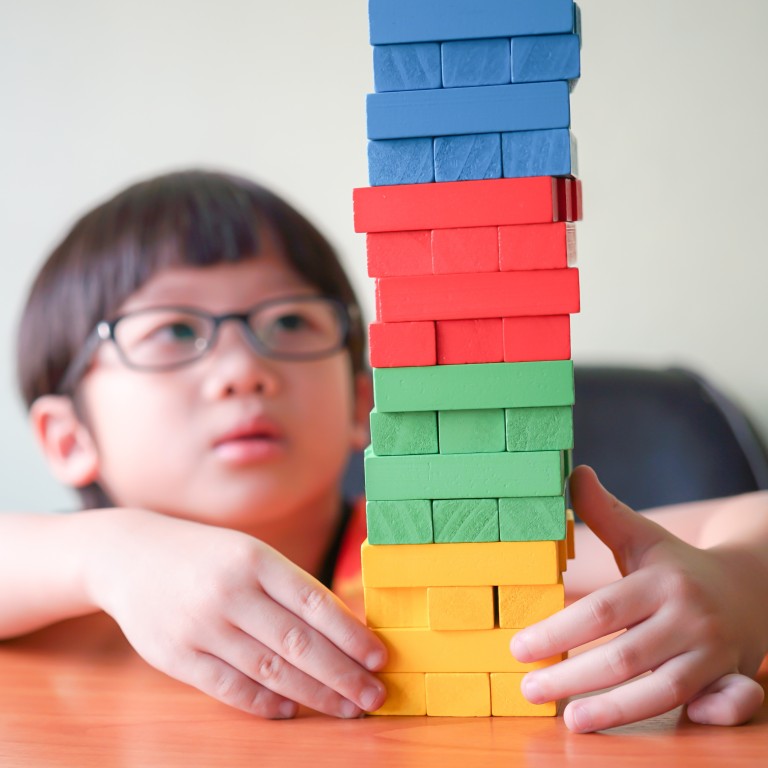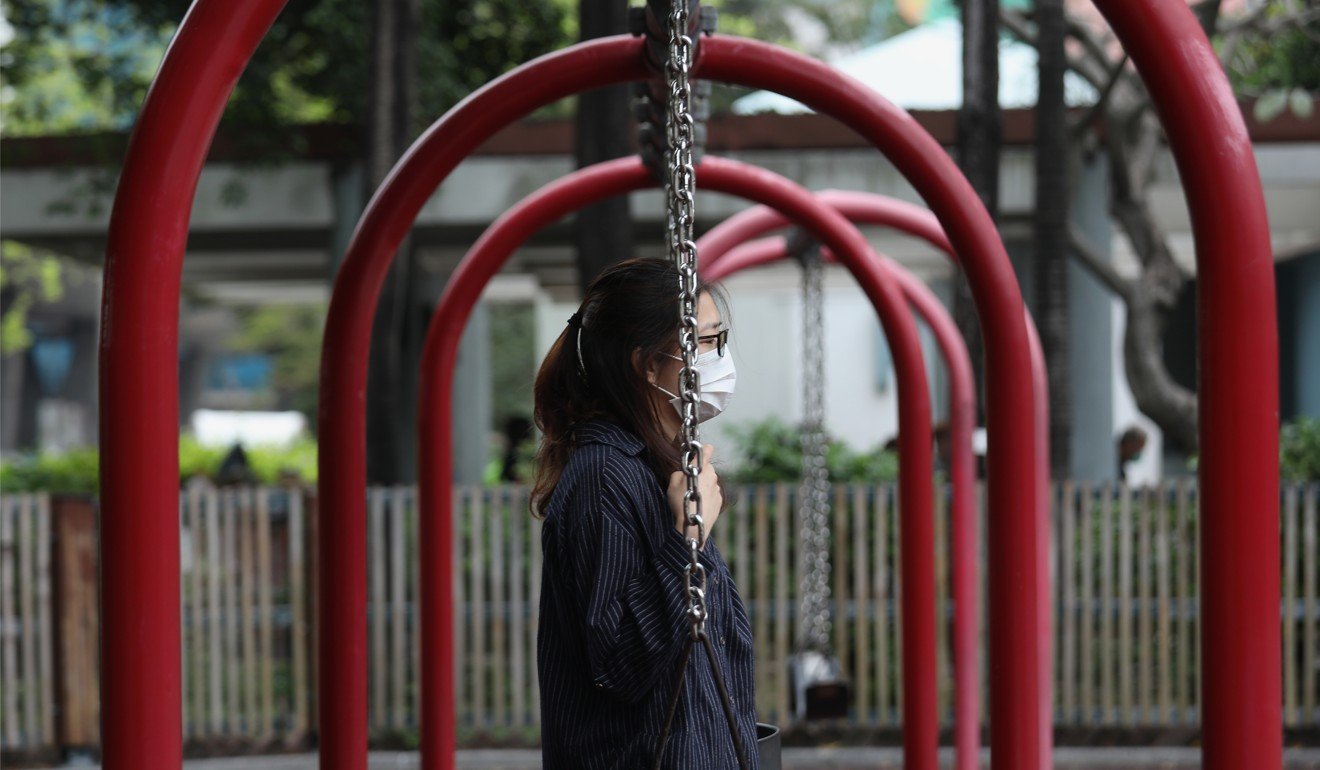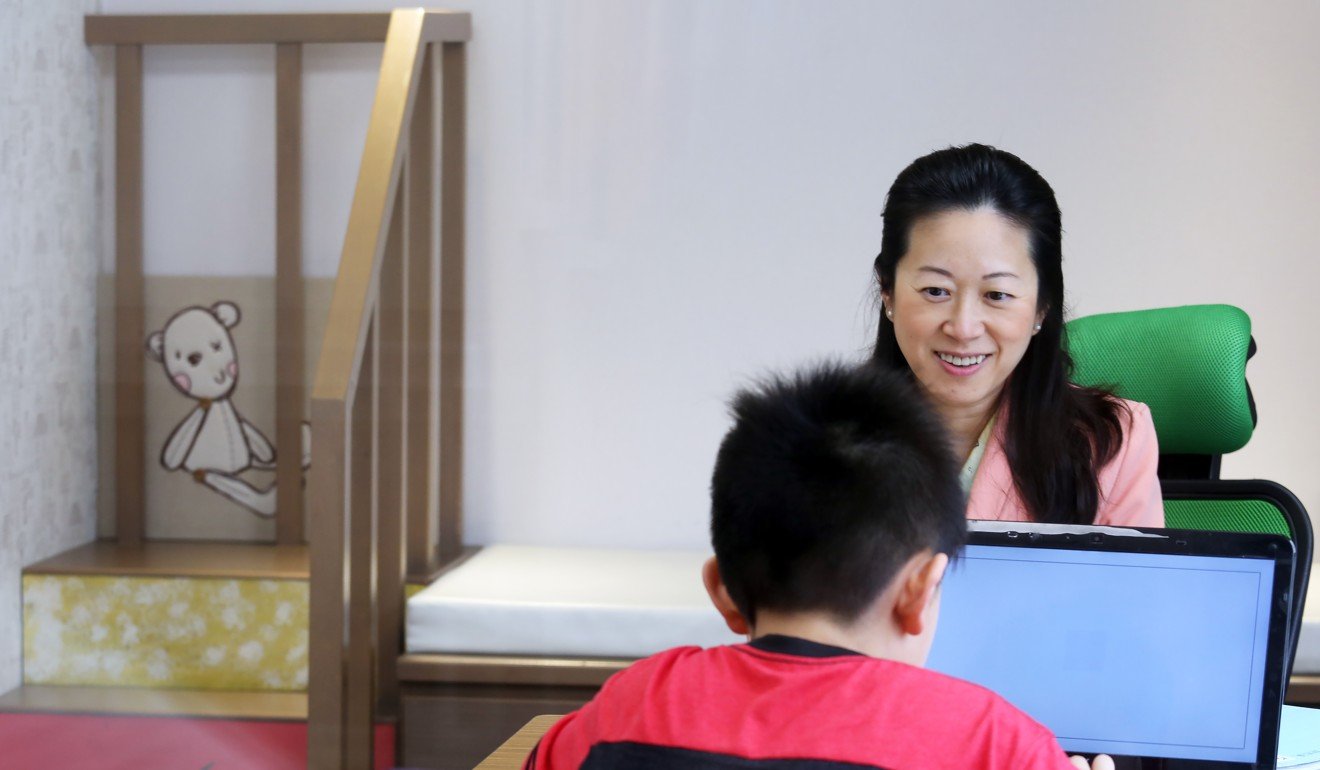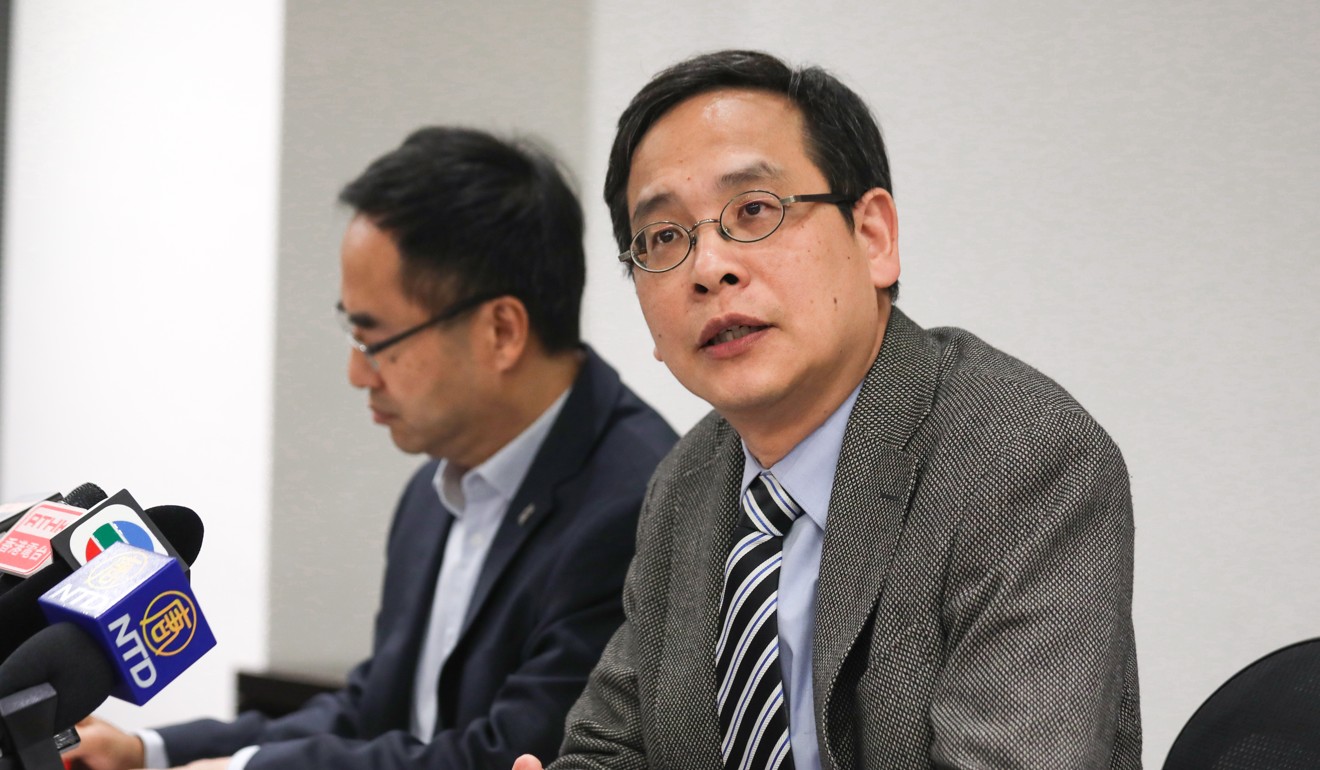
For Hong Kong students with special needs, coronavirus pandemic is harming more than just education – it can make their symptoms worse
- Parents struggling to provide adequate learning environments for children who need help from professional educators on a daily basis
- City has more than 57,000 pupils with special needs ranging from ADHD and autism to physical disabilities
Every time Liu asks her six-year-old son to study at home, he snaps, throws things and scratches her.
Their television set and washing machine have been smashed, while their door has been dented after her son threw a chair onto it. She has had both her hands and arms covered with scratches.
Asking to be identified only by her surname, Liu, 40, says her son was diagnosed with autism and attention deficit hyperactivity disorder (ADHD) last year.
She has been taking care of the Primary One pupil at home, as his school in Kwai Fong has remained closed since January because of the coronavirus pandemic.
Living in a public rental housing flat and surviving on her husband’s monthly income of some HK$10,000, the family of four – she has a daughter aged 19 – do not have a computer for her son to study online at home. His teacher sends him printed study materials and homework every two weeks.
But Liu says the materials have either been left untouched or ripped up by her son.
With no money to buy a new washing machine, Liu washes clothes by hand every night until 2am, after her son falls asleep. That is hard, she says, but seeing his conditions worsen is harder.
She says it took about three years for her son to learn the English alphabet and count to 70, but now he has almost forgotten it all. He cannot talk in complete sentences.
“I’m worried that he will not be able to write his name if this continues,” she says.
Attending to her son has taken a toll on Liu, who has become irritable and had sleep problems.
“I lose my temper with him sometimes. I will go to wash my face and stay in my room alone to calm down, and then talk to him again and give him a hug,” she says. “But I feel so tired and helpless. I don’t know how to help him.”
I feel so tired and helpless. I don’t know how to help him
The coronavirus has killed more than 5,700 people and infected over 150,000 worldwide, mostly in mainland China. Hong Kong has recorded 141 cases, four of whom have died.
As a result of the pandemic, the city’s kindergartens, primary and secondary schools have been closed until April 20 at the earliest, Secretary for Education Kevin Yeung Yun-hung announced in February.
The closures have disrupted students’ education, with most schools resorting to online teaching. But for the city’s more than 57,000 students with special educational needs (SEN), the challenges are more than educational.
Hong Kong has a growing number of students with SEN – those who have developmental problems including specific learning difficulties, ADHD, autism spectrum disorders, speech and language impairment, intellectual disability, hearing impairment, physical disability, visual impairment and mental illness.
How Hong Kong parents are coping as outbreak keeps schools closed
Statistics from the Education Bureau show that during the 2018-19 academic year, 7,950 students with SEN studied in the city’s 60 aided special schools, while 49,080 students with SEN were enrolled in public sector mainstream schools.
The closure of schools and suspension of training and care have left them trapped at home, with their needs unattended.
Chun, 37, has been staying at home caring for her three children – a 14-year-old daughter and two sons aged 12 and eight. The older of the two sons has ADHD, while his younger brother suffers from a developmental delay.
Asking to be identified by only her surname, she cares for them alone in their home in Sham Shui Po, as the part-time clerk has had no work since her company suspended operations because of the virus.
Her husband, 40, works in furnishing in the mainland city of Guangzhou after losing his job in Hong Kong.
With a lack of masks and fear of infection, Chun has only taken her children outside about three times since schools were closed in January.

Her older son is hyperactive, and often breaks things and gets hurt, and has difficulty focusing on studying. He has missed more than 10 assignments.
Her younger son is slow in learning. With no class or training, including language therapy for about two months, Chun says his ability to read has deteriorated.
“I feel at a loss,” she says. “I have tried my best to help them with their studying at home, but it’s not as effective as school.”
I feel at a loss. I have tried my best to help them with their studying at home, but it’s not as effective as school
Dr Fanny Lam Wai-fan, a specialist in developmental-behavioural paediatrics at the Hong Kong Developmental Paediatrics and Child Neurology Centre, says many children with SEN, especially those with autism and ADHD, are sensitive to change, but the pandemic has disrupted their daily routines and caused emotional problems.
“They are trapped at home, and become more angry and frustrated. That can cause more conflicts with their parents as well as self-inflicted injuries,” she says.

Lam says many autistic children have sensory issues, making them resistant to wearing masks, while children with ADHD have the compulsion to touch things in public. Their lack of awareness of self-protection makes their parents worried, she says.
Wendy Huang Wen-jie, community organiser with the Society for Community Organisation, says she has received calls for help from parents of children with SEN.
“Because they spend more time at home, and they need their parents to take care of their special needs and emotional problems, parents face great pressure, and their relations become tense, and conflicts occur,” she says.
A survey conducted by the Hong Kong Association for AD/HD between February 28 and March 6 showed that 63.8 per cent of some 140 parents said their children with ADHD had difficulty studying at home, and 58.7 per cent of them said their children had their training services cut.
Marcia Ng Mun-chi, the association’s chairwoman, says schools and teachers play an important role in the learning progress of children with SEN, who need the skills that professional educators have, and most parents do not.
“But with schools closed, all the support for students with SEN have been cut,” she says.
She wants the Education Bureau to issue clear guidelines on how schools should provide teaching for students with SEN during the pandemic, and urges schools to make adjustments to their needs.
Ricky Leung Wai-kay, principal of GCCITKD Cheong Wong Wai Primary School in Sha Tin, where about 10 per cent of students have SEN, says these pupils face more difficulties than their able peers in adjusting to online studying.
He says his school releases teaching videos and homework online twice a week, and students have to organise their studying throughout the week.
“Online learning requires self-motivation and good time management skills,” he says, adding many students with SEN lack both.
The situation has existed for a long time, and its impact on students with SEN has been huge
The school, where most SEN students are autistic, used to organise social groups and provide attention training and language therapies for them, but now has provided short videos for parents, teaching them to train their children at home, he says.
Merrick Ho Yui-chi, executive committee member of non-profit organisation the Hong Kong Blind Union, says students with visual impairment use Braille versions of textbooks – reading by touching raised dots with fingers, but these textbooks are 10 times thicker than standard ones, and hard to be taken home, he says.
Many visually impaired students study in mainstream schools, and some online studying materials are in formats, such as scanned versions, not readable by computer software or devices that convert texts into sound or Braille characters, and some students do not have the necessary tools at home, he says.
How low-income families with autistic children can receive subsidised therapy
Aside from schools, training and care services for children with SEN provided by the Social Welfare Department and some non-governmental organisations have been scaled back since the Lunar New Year holiday to reduce infection risks.
But Dr Lam says these services are essential to the development of these children, and the abrupt suspension of them has caused their conditions to deteriorate.
The Social Welfare Department said it had discussed with relevant NGOs to provide individual training services, including centre-based training, electronic learning and in-home training, for children with special needs during the crisis.
Education sector lawmaker Ip Kin-yuen believes the Education Bureau has not done much to address the difficulties facing students with SEN, and left the pressure on schools and parents, who have limited resources and ability to tackle the issue.

“The situation has existed for a long time, and its impact on students with SEN has been huge,” he says.
Labour Party lawmaker Fernando Cheung Chiu-hung says essential services, including centre-based and home-based care and training, should be resumed with minimal social contact, sufficient protective items and training for all those involved.
He says additional training and therapy services should also be provided to help them catch up with their development when schools resume.
“They really need more guidance from the professionals as soon as possible,” he says.

